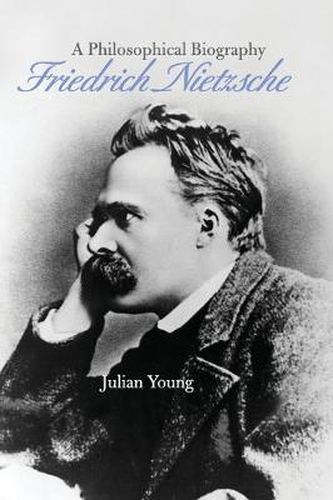Readings Newsletter
Become a Readings Member to make your shopping experience even easier.
Sign in or sign up for free!
You’re not far away from qualifying for FREE standard shipping within Australia
You’ve qualified for FREE standard shipping within Australia
The cart is loading…






In this beautifully written account, Julian Young provides the most comprehensive biography available today of the life and philosophy of the nineteenth-century German philosopher Friedrich Nietzsche. Young deals with the many puzzles created by the conjunction of Nietzsche’s personal history and his work: why the son of a Lutheran pastor developed into the self-styled ‘Antichrist’; why this archetypical Prussian came to loath Bismarck’s Prussia; and why this enemy of feminism preferred the company of feminist women. Setting Nietzsche’s thought in the context of his times - the rise of Prussian militarism, anti-Semitism, Darwinian science, the ‘Youth’ and emancipationist movements, as well as the ‘death of God’ - Young emphasises the decisive influence of Plato and of Richard Wagner on Nietzsche’s attempted reform of Western culture.
$9.00 standard shipping within Australia
FREE standard shipping within Australia for orders over $100.00
Express & International shipping calculated at checkout
Stock availability can be subject to change without notice. We recommend calling the shop or contacting our online team to check availability of low stock items. Please see our Shopping Online page for more details.
In this beautifully written account, Julian Young provides the most comprehensive biography available today of the life and philosophy of the nineteenth-century German philosopher Friedrich Nietzsche. Young deals with the many puzzles created by the conjunction of Nietzsche’s personal history and his work: why the son of a Lutheran pastor developed into the self-styled ‘Antichrist’; why this archetypical Prussian came to loath Bismarck’s Prussia; and why this enemy of feminism preferred the company of feminist women. Setting Nietzsche’s thought in the context of his times - the rise of Prussian militarism, anti-Semitism, Darwinian science, the ‘Youth’ and emancipationist movements, as well as the ‘death of God’ - Young emphasises the decisive influence of Plato and of Richard Wagner on Nietzsche’s attempted reform of Western culture.